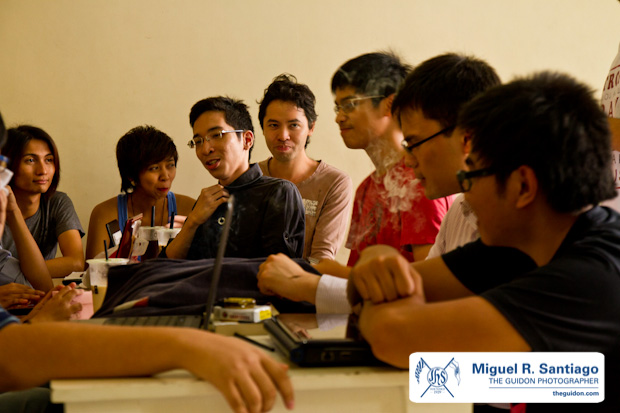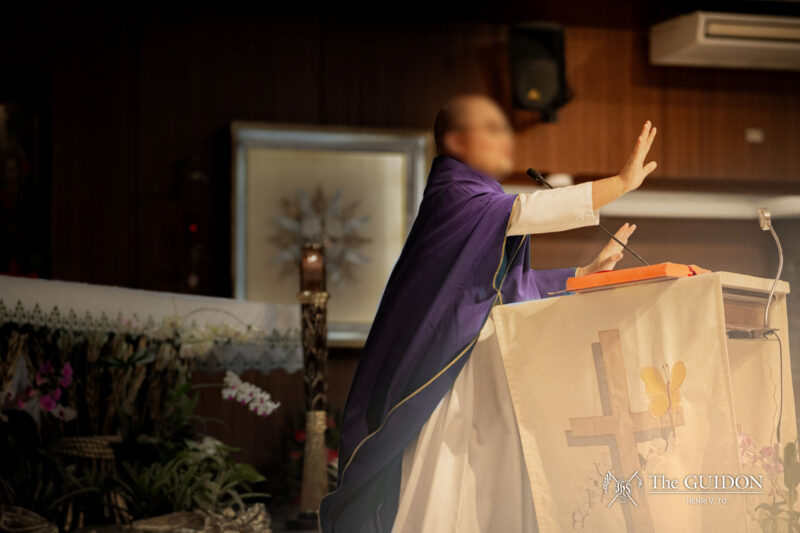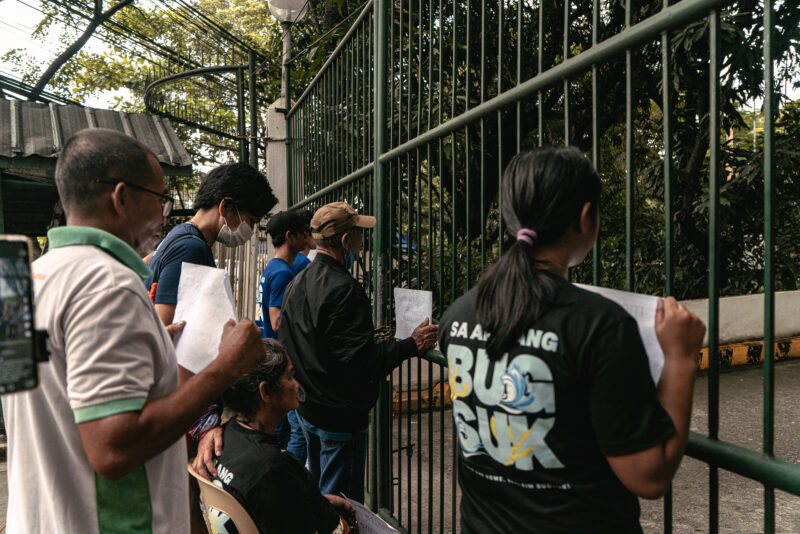
A CONFERENCE OF OPINIONS. The Filipino Freethinkers' Katipunan Chapter converges at Moonleaf Tea Shop for their weekly meet-up. Photo by Miguel R. Santiago
It’s 3:00 PM on a sweltering Saturday afternoon, and the Moonleaf Tea Shop in Katipunan is unusually crowded. While the rest of the patrons line up inside for their tea fix, sophomore psychology major Marisse Galera is content to sit outside.
Surrounded by a diverse group of people ranging from Ateneo and UP students to graduates, she chats happily away about a variety of topics, from Adele’s recent pregnancy to the ridiculousness of KFC’s Cheese Top burger.
There is no sign that draws any attention to them, nor any indication that this is more than just a group of friends meeting up for milk tea. Nevertheless, this group is more than just a bunch of young adults gathered for an afternoon powwow: this is the Katipunan chapter of the Filipino Freethinkers.
Without constraints
Filipino Freethinkers (FF) is a group devoted to free thought—the practice of thinking without the constraints of “dogma, authority and tradition.” Founded by De La Salle University alumnus Red Tani, the Freethinkers aim to permanently separate religion and State when it comes to decision-making for our country.
One thing that sets the Freethinkers apart from other organizations is their strong online presence. The Freethinkers have an official website, http://filipinofreethinkers.org, where they publish write-up contributions from members (such as the controversial “Lady Gaga vs. The Bible: An Obscene Face-Off”). The group also has accounts on several social networking sites.
Students like Galera got involved with the organization after finding the group on the Internet. “I heard about them and read some of their articles online,” says Galera, who’s been active in the group since last school year.
It’s their capitalizing on the popularity of social media that has enabled them to win numerous accolades, like “The One” award from the 2012 Globe Tattoo Awards, for “leading the pack in terms of online popularity and shaping opinion [in] the local online community.”
“My editorial team and I go through submissions and content on a daily basis,” says Marguerite de Leon (AB Comm ’07), the Editor-in-Chief of the Freethinkers’ website. “It’s about making sure that the articles we put out there exemplify what it means to communicate as a freethinker: rationally, intelligently, and without fear.”
Glass shattered
It’s easy to assume that the Freethinkers are nothing but a radical group—after all, these are people who’ve rallied for the RH bill dressed as pregnant women in Noynoy Aquino masks. Several members, however, dismiss this as nothing but a “knee-jerk reaction.”
“What people say about the Filipino Freethinkers is that they seem militant because people have never heard of something like this in the Philippines before,” explains Leloy Claudio, PhD from the Political Science Department. “Religiosity is so accepted in the Philippines [that when] people are saying, ‘No, we want to fight for secularism,’ suddenly, it’s so different that the automatic response is to say, ‘That’s radical.’ Actually, it’s not.”
De Leon agrees with this statement and says, “People who call us just a bunch of radical atheists obviously didn’t take any time to get to know us even a little bit.”
“All you have to do is go to one meet-up, or check the website, and you’ll see that it’s a large conference of opinions,” says Kenneth Keng (BS LM ’05), the Freethinkers’ RH Advocacy Director. Keng himself is an anomaly towards the quick assumption that all Freethinkers are atheists or agnostics. Born and raised an Episcopalian, he still maintains a strong devotion to his Christian beliefs.
Coming out
In this session, the Freethinkers have devoted the meeting to “Freethinking 101,” which they’ve defined as “thinking without religion.”
Galera begins by asking everyone to introduce themselves and how they came to be part of the Freethinkers. There are some who proudly proclaim their atheism. However, others are more subdued, and it takes a bit of coaxing for them to get their stories out.
“Every time there’s a Filipino Freethinkers meeting, the first question Tani always asks is ‘How did you become a Freethinker?’ or ‘What do you believe?’” says Claudio. “And they sound like coming-out stories!”
Galera, an agnostic deist, has not told her family of her secularist involvement, despite being a pillar of the group’s Katipunan chapter. “My mother does not know of my religious views, although I think she has an inkling about them,” she says.
In a country dominated by religiosity, it’s especially difficult to come out with a set of beliefs not considered the norm. “The assumption in a country like the Philippines is that you are not an ethical being if you don’t believe in a god,” says Claudio. “That’s a really massive condemnation. It really places you in the position of a second-class citizen.”
Keng recalls how, because of his secularist views, he was physically assaulted in Congress as an audience member during a debate on the RH bill. “[He] sits next to me, stands up, and back-fists me,” he recalls, naming former senatorial candidate Rizalito David as the culprit. Though Keng and Tani eventually went on to speak to local networks about the incident, Claudio says it is not the first, as verbal abuse is common.
“When the FF mobilize sometimes, people say things like, ‘Your parents should have aborted you!’” he says. “So rather than think about the group as a set of crazy-ass militants, think about them as oppressed people.”
“[We] could also be seen as a minority,” Claudio adds.
A “plurality of views”
Secular representation, especially in a Jesuit university like the Ateneo, seems impossible. Claudio and de Leon agree that through proper discourse, it can be done.
“Ateneo links its identity so much with social justice, and I think social justice cannot truly take place unless the Church and the State remain separate,” says de Leon. “When you want to help people in the most efficient and effective way that you can, what you look at are the facts, at the reality of the matter, not centuries-old doctrine.”
Galera, however, thinks that entirely separating religion and State, especially in a Catholic university, is something that needs to be further studied. “Perhaps what I meant when I said that this school needs secularism is that because our school undeniably produces the leaders of this nation, we need more Ateneans who have secular views.”
Whether or not secularism will be welcomed into wider university culture is not the point. In the end, it’s about accepting the fact that there are others who view things differently—and accepting their views may be a long and difficult road.






